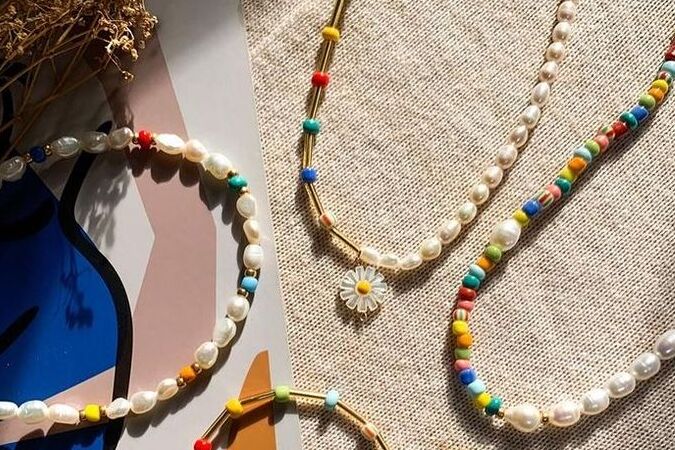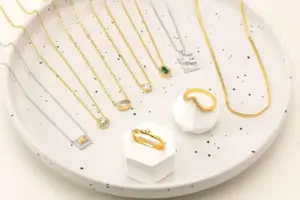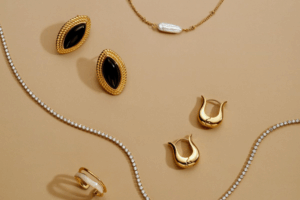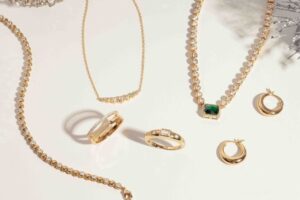There are many types of beads that can be included in jewelry lines, such as glass beads, seed beads, crystal beads, plastic beads, stone beads, wood beads, and metal beads. They are available in various colors and sizes, but some of them like plastic beads and metal beads are of poor quality.
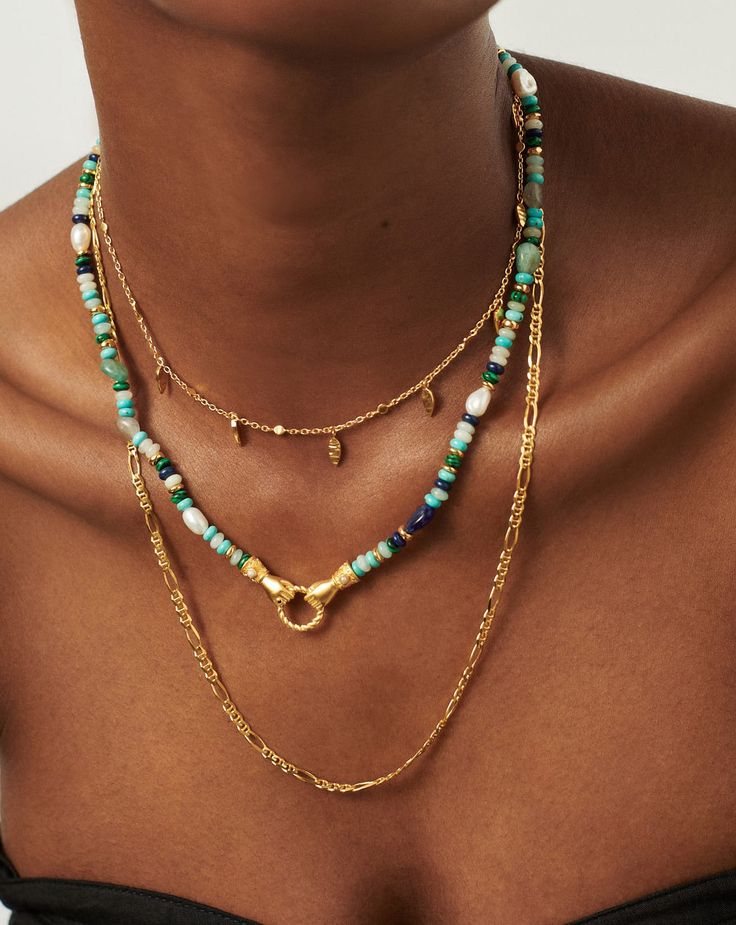
Source: Pinterest
In this article, we will discuss the two best beads you can incorporate in your jewelry line – Glass Beads and Seed Beads. Read on to know more about them and which one is better for your jewelry collection.
Common Types of Beads Used in Jewelry
Beads come in many forms, from natural gemstones and pearls to man-made materials like resin, acrylic, and ceramic. Among them, glass beads and seed beads stand out for their versatility, affordability, and wide range of shapes, colors, and finishes, making them essential in both fashion jewelry and beadwork designs.
What Are Glass Beads?
These are small, decorative beads made from glass. They have been a staple in jewelry designs for centuries, and are highly valued for their elegance and versatility.
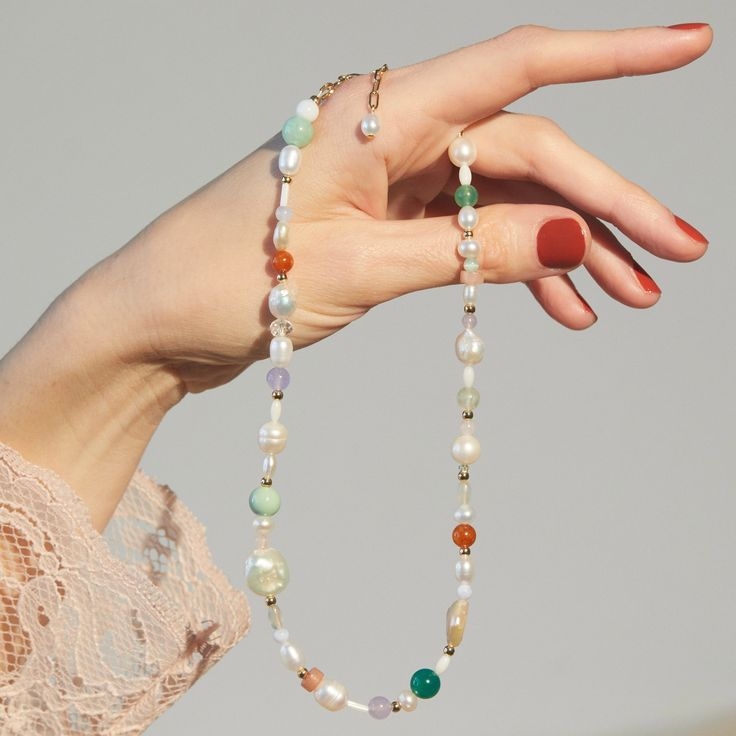
Source: Pinterest
- Color
Glass beads are in either single-color or multicolor. There are transparent glass beads, translucent glass beads, opaque glass beads, and other colored glass beads.
- Size and Shape
Glass beads come in various sizes and shapes, such as 1mm glass beads, 2mm glass beads, 4mm glass beads, 5mm glass beads, 6mm glass beads, and 8mm glass beads. You can also get larger glass bead sizes, like 12mm glass beads, 14mm glass beads, and 16mm glass beads.
Shapes range from perfectly round to irregular, pressed, or faceted forms. Czech glass beads, known for their exceptional quality, are especially popular in jewelry making.
- Common Uses
Glass beads are commonly used in various accessory applications, such as glass beads for jewelry making, glass beads for embroidery, glass bead bracelets. They are also used in clothing, evening gowns, shoes, hats, and handbags.
Glass Beads Size Chart
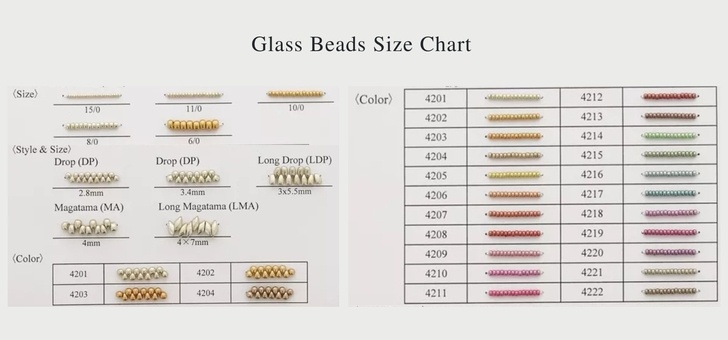
What Are Seed Beads?
Seed beads are tiny, round glass beads, valued for their uniformity and ability to create intricate patterns. There are several types of glass seed beads, but the best are Japanese cylinder beads, Japanese Miyuki seed beads, and Czech beads.
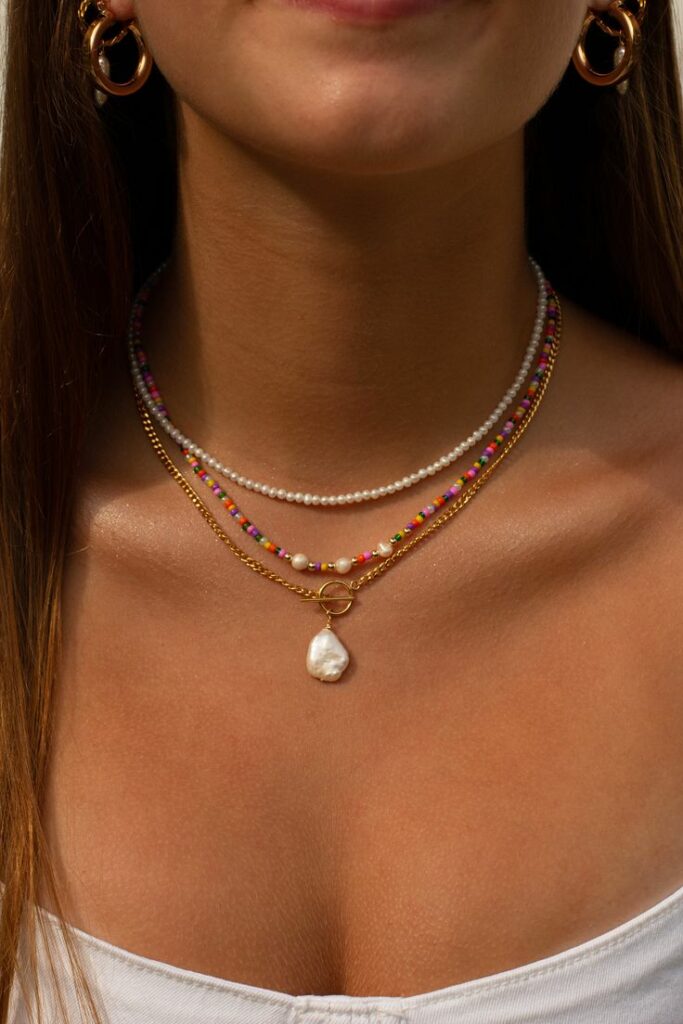
Source: Pinterest
- Color
Seed beads are available in transparent and opaque colors, offering dual options for creating a vibrant and subtle custom jewelry design.
- Size and Shape
Seed beads are typically smaller than 4mm, and their size is defined by a standard numbering system. Examples include:
- 6/0 seed beads in mm – approx. 4.0mm
- 8/0 seed beads in mm – approx. 3.0mm
- 11/0 seed beads in mm – approx. 2.0mm
- 12/0 seed beads in mm– approx. 1.9mm
The rule is simple: the larger the number, the smaller the bead. This makes seed beads ideal for precise work, where scale and detail matter.
- Common Uses
These types of beads are suitable for pieces that require precise patterns and textures, such as bead weaving, beaded bracelets, necklaces, embroidery, and detailed jewelry designs.
Glass Beads Size Chart
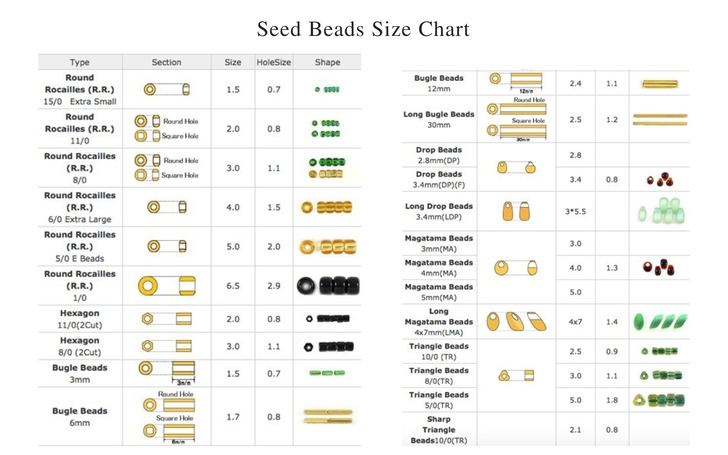
Seed Beads vs. Glass Beads: Key Differences
When comparing the differences between seed beads and glass beads, the main distinctions come down to size, shape, and application. Glass beads cover a broad category—they can be large or small, round or faceted, and are often chosen for bold designs or as accent pieces. Seed beads, on the other hand, are a special type of glass bead made to be very small and uniform, making them ideal for weaving, embroidery, and detailed patterns. Here’s a quick comparison of seed beads vs glass beads:
| Features | Glass Beads | Seed Beads |
| Size | Varies widely, ranging from very small to large | Small, typically tiny, ranging from 15/0 to 6/0 |
| Shape | Round, faceted, oval, square, irregular | Uniform, mostly round or cylindrical |
| Color Variety | Extensive color options, transparent, translucent, and opaque | Wide color range, transparent and opaque |
| Finishes | Matte, faceted, frosted | Matte, metallic, opaque, translucent |
| Common Uses | Focal points, accents, adding dimension to necklaces and bracelets | Layering jewelry, intricate beadwork, weaving, embroidery, and patterns |
| Design Style | Best for bold, eye-catching elements or chunky pieces | Ideal for minimalist, delicate, detailed designs with layered patterns |
How to Choose Between Glass Beads and Seed Beads for Your Jewelry Collection?
Consider the following factors to choose the better option between glass beads and seed beads for your jewelry collection:
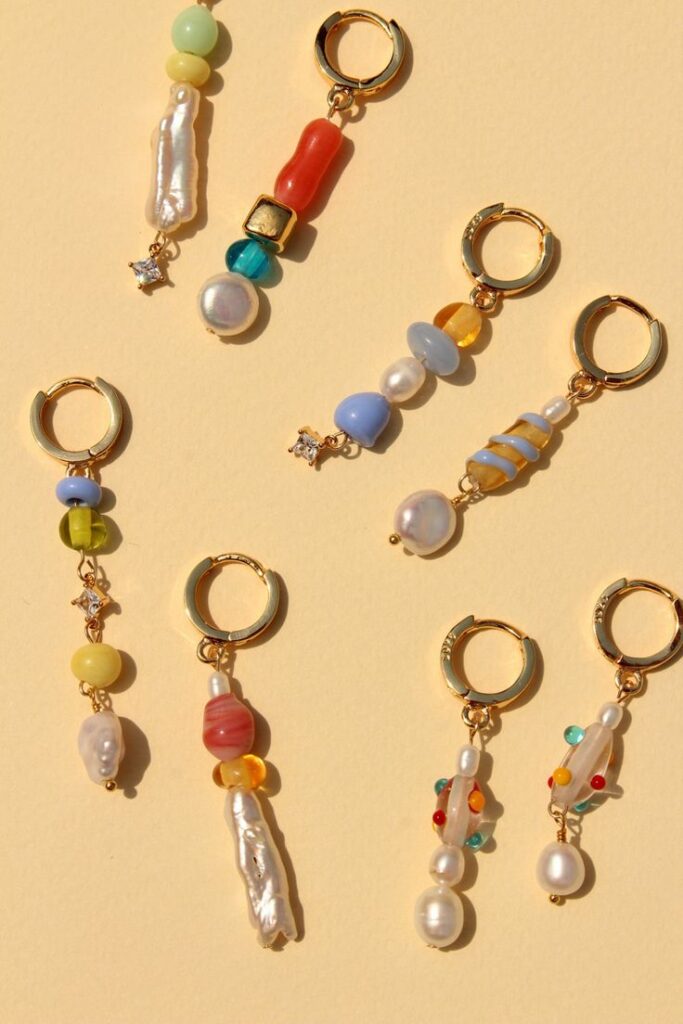
1. Design Purpose and Requirement
Firstly, be certain about the jewelry design purpose and requirements. This will direct you to the type of bead to choose.
Generally, glass beads are suitable for jewelry pieces with high transparency and intricate shapes. They are perfect for adding shine and dimension to jewelry that has focal points, and needs to catch light or attract attention.
Seed beads, on the other hand, are better for jewelry pieces that require small, delicate, and colorful designs. Seed beads have a uniform look that makes them perfect for intricate patterns and detailed beadwork pieces.
2. Target Market
The prospective market is another factor that plays an essential role in choosing the right bead for your jewelry collection.
Glass beads are cost-effective and ideal for large-scale production & mid-to-low-end markets. Their affordability and versatility make them popular among young consumers seeking fashion and fun.
In contrast, seed beads are popular among those prioritizing refinement and high quality. The imported ones are more costly and suited for high-end markets, thus it’s an option for premium jewelry lines focused on quality and detailing.
3. Jewelry Concept & Style
The jewelry manufacturing process, which includes the jewelry concept and style, should also be taken into consideration when choosing the bead that fits.
Glass beads are available in larger sizes, diverse shapes, and vibrant colors, making them excellent for eye-catching jewelry, statement pieces, and chunky accessories.
On the other hand, seed beads are in smaller sizes and in uniform, round sizes, making them ideal for minimalist, intricate, delicate jewelry designs like woven bracelets, layering necklaces, embroidery, and micro-patterning.
4. Color and Size
Lastly, when selecting the preferred bead, carefully consider the color palette and sizes that align with your design aesthetic, project theme, and different types of jewelry.
Glass beads offer a range of larger sizes and vivid colors, which complement bold and dynamic jewelry designs.
Whereas, seed beads are smaller and available in transparent & opaque colors. They work best in more subdued color schemes or intricate color patterns.
Tips for First Incorporating Beads into Your Product Line
When you first incorporate beads into your jewelry line, it’s crucial to take the following into consideration:
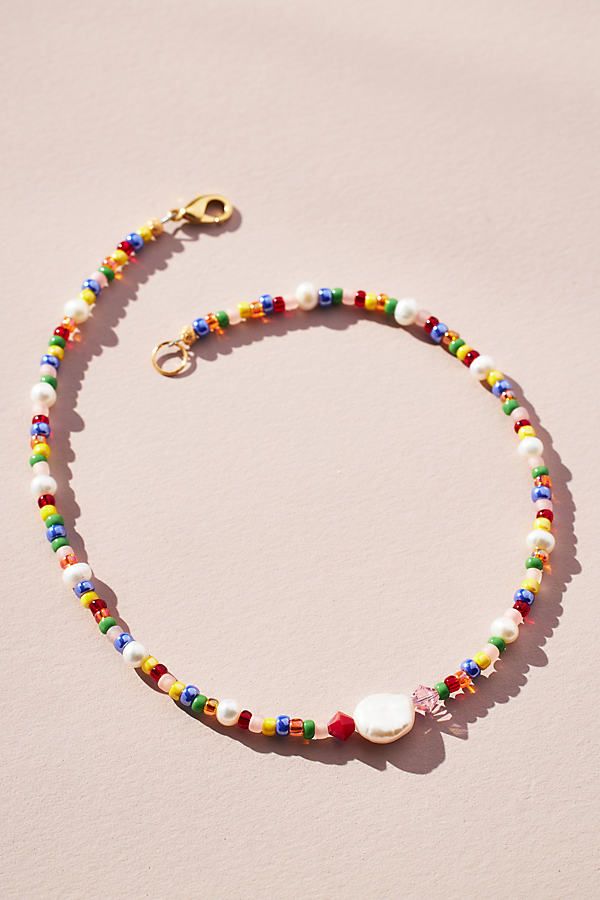
Tip #1: Be Aware of Inferior Quality Beads
It’s crucial that you avoid incorporating inferior quality beads into your product line. Low-quality beads usually have inconsistencies in size, chipped edges, or fading finishes that impact the jewelry’s market appeal and durability. This is most common with plastic beads, which are lightweight and lack the feel and durability of glass beads or seed beads. They fade over time, thereby reducing the final jewelry piece’s quality.
Recommendation: To ensure long-lasting, attractive pieces, choose common and popular types like glass beads and seed beads.
Tip #2: Experiment with Versatile, Neutral Colors First
Beginning with versatile, neutral colors when incorporating seeds or glass beads jewelry designs into your product line provides an easier and more cohesive blend. Colors like white, black, and beige go well with various styles and appeal to a broader audience. They also work well across different seasons and occasions, making them versatile options to elevate your whole product line.
After you’re comfortable with the blend and know customers’ interests, you can expand into other colors.
Tip #3: Understand the Bead Sizing and Its Impact
Bead size plays a great role in the design and production of jewelry. Glass beads jewelry pieces are bigger because the beads are larger in size. This makes them excellent for statement pieces.
However, seed beads jewelry are smaller because the beads are tiny. This makes them suitable for creating intricate and detailed designs. But this requires more time, materials, and precision.
Tip #4: Source High-quality Materials from a Reliable Manufacturer
Finding a reliable custom jewelry manufacturer is crucial to maintaining quality and consistency in your glass or seed beads jewelry line. Establish a strong relationship and partner with a reliable manufacturer that offers quality beads that blend perfectly with your jewelry pieces. Choose from a wide range of options, including glass beads and seed beads.
Key Takeaway
Glass beads and seed beads are two popular types of beads for jewelry, adding elegance and class to jewelry pieces. They are available in different colors, sizes, shapes, and can be incorporated into various types of accessories. Choosing the better option for your jewelry line depends on the design purpose & requirement, target market, jewelry concept & style, and color & size.
FAQs
Glass beads are made by melting glass and shaping it through methods like lampworking, pressing, or fire-polishing. Handmade beads are unique, while machine-made beads allow for consistent, large-scale production.
Seed beads are created by stretching molten glass into thin tubes, cutting them into tiny pieces, then reheating to round and polish the edges. They are later coated or dyed for color and finish.
High-quality glass beads, such as Czech glass beads, keep their color and shine if properly cared. Lower-quality beads may lose coatings or fade if exposed to sunlight, chemicals, or frequent wear.
